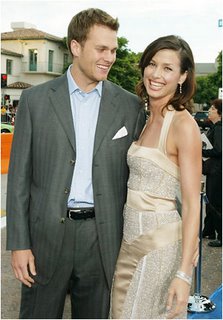I wasn't born yet but I can remember my parents telling me how special this season was and how baseball at this time era was the best there ever was. I found a great article on the season and thought I'd share it with you.In every life there is one immortal summer. For me, and for countless other Red Sox fans, it is the Impossible Dream summer of 1967 that still burns in the memory, still lives as a wellspring of surprisingly deep feeling.
I was 11 years old then, and crazy for baseball in the way only an 11-year-old can be. Walking my paper route up and down Ashland's hills, I buried my nose in the sports section of my customers' Globes and Record-Americans and Herald-Travelers, heedless of the traffic.
During pickup games, I was sometimes Rico Petrocelli, the Sox's eager young shortstop, but more often I was Tony Conigliaro. (Tony C. dated starlets, and I hoped one day to do the same.)
Never did I imagine myself as Carl Yastrzemski. In 1967, that would have been like pretending to be God.
As the Sox headed north from spring training that year, Vegas was laying 100-1 odds against them winning the pennant. But my friends and I were expecting big things. We were always expecting big things from the Sox: We were kids. What did we know, or care, that it had been almost 50 years since they had won a World Series?
Now Time, that wily thief, has stolen another 30 years from us all. Now we know what our parents and grandparents knew, that to be a Red Sox fan is to envy Marley's Ghost, who only has to wear the chain he forged in life, and doesn't have to lug around a chain forged by Bill Buckner and Harry Frazee and Bucky Bleeping Dent.
Today, I look back with a bit of disbelief at that turbo-charged summer of 1967.
In particular, I think of Yaz -- mighty, mythic Yaz. It is next to impossible to describe the sensation of watching him stride majestically through that season. He hit one homer after another, made one astounding play after another, always at the moment of highest drama -- and you knew he would come through every time. You just knew it.
In 1990, in the first May Day march in Prague after the fall of communism, two jubilant men carried a sign that read: "Don't believe in miracles. Rely on them." That was how every kid in New England felt about Carl Yastrzemski in 1967.
I think also of my father. When the pennant chase came down to two final, apocalyptic games with the Twins, Dad and I ensconced ourselves in adjoining easy chairs in our family den. We drew the shades to keep sunshine off the TV set, turned up the volume so it would feel as if we were at the ballpark, and settled in for the final chapter of a saga that had transfixed New England all summer long.
My father was born in 1927, a year when the New York Yankees dynasty was at its zenith, led by Babe Ruth, who should have been winning pennants for the Red Sox but had been sold by the accursed Harry Frazee. My father had lived through the disappointment of 1946, when Johnny Pesky held the ball and Enos Slaughter scored and the Sox lost the World Series.
But he didn't mention to me that my Sox had last won a World Series in 1918. Why burden the kid with the past? However, when Yaz assumed his familiar corkscrew stance at the plate, my father told me about the time he'd taken me as a preschooler to see Yaz's legendary predecessor in left field: Ted Williams.
It is startling to realize now that in 1967, my father was younger than I am today. The unfiltered Lucky Strikes Dad smoked back then glowed red in the darkened den. The whole weekend seemed frozen in time, as if all other activities in the universe were on hold. We watched the ballgames in an unspoken communion of father and son, one of the best gifts baseball gives us.
Remembrance is the other great gift. I can still name the 1967 Red Sox lineup without consulting a scorecard, and Yastrzemski's stats -- .326 batting average, 44 homers, 121 RBI -- are etched in my cortex. My friend Brian, who is similarly afflicted, joined me in conjuring up memories of 1967 at Fenway the other night while we were watching the 1997 Red Sox.
Jim Lonborg, who would win 22 games and the Cy Young Award, presiding with paladin cool over the mound at Fenway. George Scott swatting 450-foot homers and scooping up everything hit his way at first. Right fielder Jose Tartabull, an unknown, exceeding the limits of his weak arm and throwing out a runner at the plate in a big game. Rico roosting under that final pop fly, then squeezing it into his glove to win the pennant while Boston went delirious with joy. Reggie Smith. Dalton Jones. Mike Andrews. Joe Foy. Jerry Adair, steadiness incarnate. Hawk Harrelson, our own flamboyant version of Joe Namath. Elston Howard, who had broken up rookie left-hander Billy Rohr's no-hitter while with the Yankees but helped the Sox in the stretch. Jovial third-base coach Eddie Popowski. Sparky Lyle. Manager Dick Williams, the crew-cut disciplinarian in the dugout, whom I didn't like because he reminded me of my shop teacher.
And Tony C., young, powerful, charismatic, surely on his way to a 600-homer career. Tony C., struck down by a fastball in August of 1967 with the sudden, jolting horror of a death in the family. To an 11-year-old, the sight of Tony C. unconscious in the dirt was the first hint that none of us lives forever.
Thirty years later, I can still recite from memory, and it still chokes me up to do so, Ken Coleman's rendition of that awful moment from the record, "The Impossible Dream," released after the season. "And then one August night, the kid in right, lies sprawling in the dirt. The fastball struck him square; he's down. Is Tony badly hurt?"
Years later, I would learn that Yaz and Tony C. didn't like each other. Years later, I would notice the strange lack of joy Yaz sometimes took in the game he played so well, that it seemed to be a job to him.
But in 1967, I didn't know any of that. I only knew that my friends and I spoke of Yaz in the same awed tones our parents used when discussing FDR and Churchill. He made 1967 a Camelot for those of us too young to really remember JFK.
Was White Sox manager Eddie Stanky rash enough to disparage Yaz as "an All-Star from the neck down"? Then Yaz would get four hits against the White Sox, homer in his final at-bat, and tip his cap to Stanky as he rounded the bases.
Did Rohr need an impossible catch to preserve his no-hit bid in his major league debut against the Yankees? Then Yaz would make an impossible, somersaulting catch in the ninth inning, while Coleman frenziedly shrieked "Yastrzemski is going hard, way back, way back. And he dives -- and makes a tremendous catch!" (Rohr would lose the no-hitter two batters later, but Yaz had done his part.)
Did the Sox, down 8-0 to the Angels, need a 3-run homer to ignite an amazing come-from-behind rally that would propel them to a 9-8 victory? Then Yaz would hit one. Did Yaz need to field a line drive with his bare hand on the first bounce to nail the runner at the plate? Then Yaz would do just that.
But it was in the final month of the season that Yaz soared into the realm of myth. The pennant race was intense, with the Red Sox, White Sox, Tigers, and Twins all bunched together, straining like racehorses toward the finish line. With two weeks to go, exactly one-half game separated the four teams. So what did Yaz do? He merely went 40 for 96 (.417) in the last 27 games of the season, driving in 26 runs. In his final 13 plate appearances, with everything on the line, Yaz got 10 hits. He ended up winning the Triple Crown.
Any player posing a threat to the Sox inhabited my personal demonology that year. I hated Jack Hamilton, who threw the pitch (a spitball, it was rumored) that shattered Tony C.'s cheek, and eventually his career. I hated the Twins' Harmon Killebrew, who had the effrontery to battle Yaz for the home-run crown. I hated Dean Chance, his name full of smoky menace somehow, who pitched the final regular-season game against Lonborg.
And I hated, with a deep thrill of fear, the forbidding Bob Gibson, star pitcher of the St. Louis Cardinals. He would crush the Sox -- and the hopes of all of us -- by winning three games in the World Series. A year or so ago, I heard Gibson interviewed on a Boston radio station, and was startled at what a nice guy he appeared to be. In 1967, he seemed as menacing as Moloch. When he took the mound, I trembled for my Sox.
I even came to hate my best friend, Paul, over the Red Sox. We'd rooted for the Sox together all summer, but when the Sox fell behind in the seventh game of the World Series, Paul began teasing me, predicting they would blow it. Then, in what I viewed as an unspeakable act of treason, he even offered to bet $1 on the Cardinals. When the game ended with the Sox losing, 7-2, I stormed out of Paul's house and walked home, tears scalding my face. I felt very old all of a sudden. I didn't talk to Paul for almost a year after that.
Extreme? You bet. But I was 11, and the lesson of the Impossible Dream year of 1967 was that life would always be lived at a fever pitch, that one heart-stopping drama would always follow another, that Good would always triumph over Evil.
In that sense, I guess 1967 was make-believe after all. But what a wonderfully sustaining fiction it was.


































